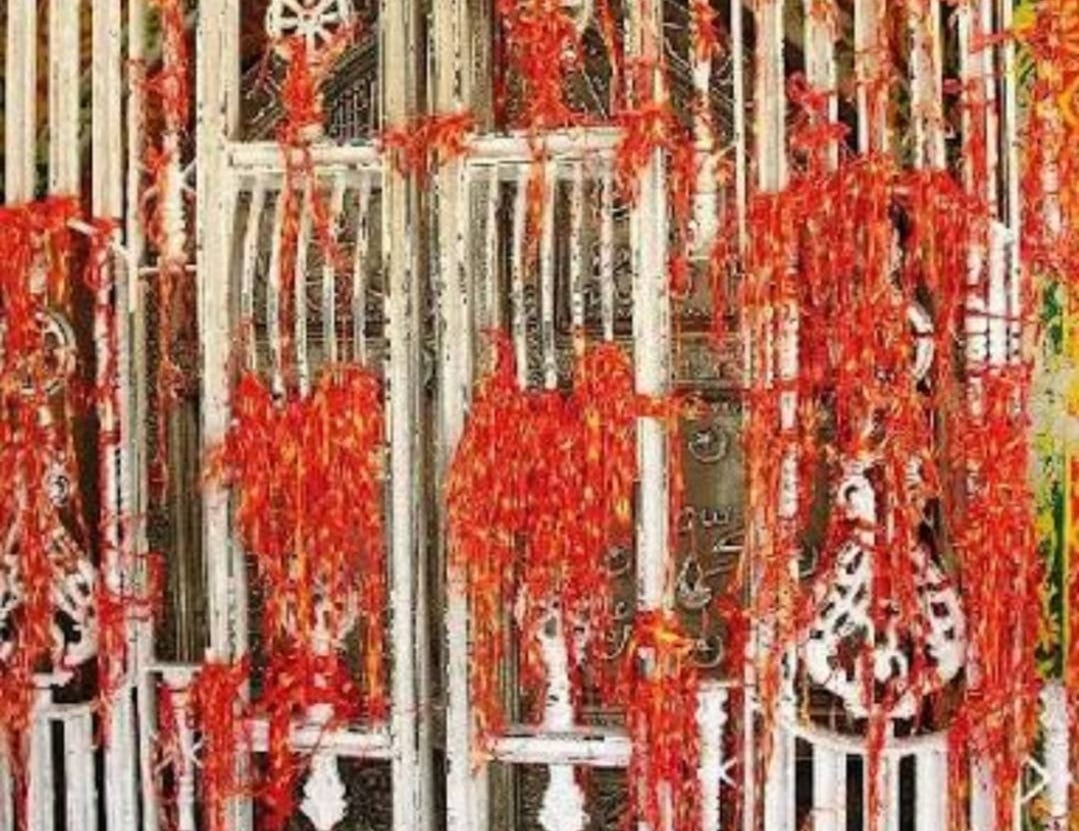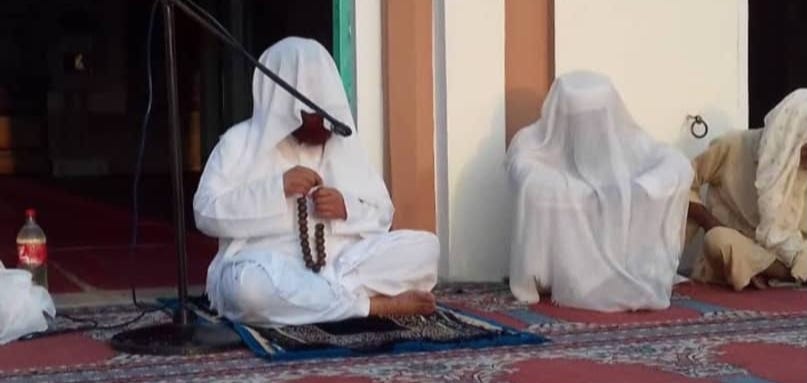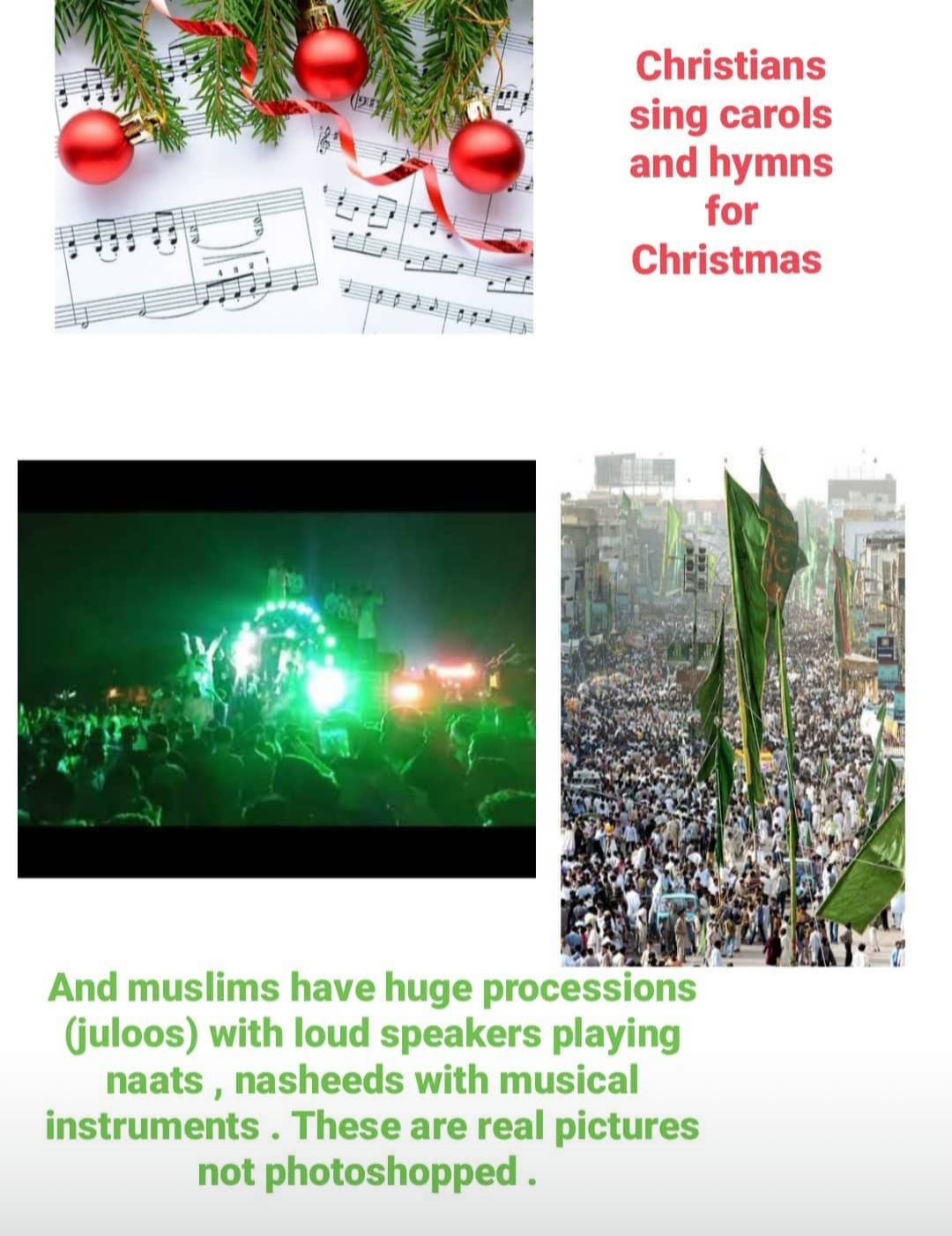All these aashiq e rasool (as they call themselves) They claim love for the messenger,While doing everything he hated, he commanded not to do , he abhored.
What kind of fake love is this ?
So if you love Allah,
Ittibaah (following ) is the way. Not bidah (innovating). Such a big proof against these aashiq e rasool.
One more thing :Islam has no place for ishq .Ishq isn't the way Allah taught us Allah has always used the word ” حب” (Arabic has more than 70 words for love. Hubb is one among them)in the Quran.Hubb is the love.
عشق is nowhere from the quran or the sunnah. Because ishq isn't healthy or sane.Why ? Because ishq , the word comes from the name of a plant that lives in water . If the water is cut off , it DIES.
The spirit and peak of ishq is fanaa (ending). And Islam doesn't encourages such toxic concepts where it involves , getting lost into something, losing oneself or ending oneself.
When Allah didn't allow such love from his slaves for HIMSELF, then how can you love the messengers or awliyas like that?
Allah used the word "حب" for love . Even the love for Him from His slaves Not ishq .Scholars and thinkers called ishq as a kind of insanity, where man isn't a sane tamed , orderly , balanced being. But rather in the state of junoon (just like we know how a man loved layla so much that he became mad and hence was named majnoo).
All of this ishk for Allah and His prophets and awliyas IS FROM THE WAY OF THE DEVIANT SUFIS !
Who have gone insane. They sing for Allah (like qawwalis) dance for Allah (the white gown bucket like hats idk what its called) , write poetries and calligraphies for Allah .
Their ishq has grown into several blasphemous concepts.
For example , they claim ishq for Allah, to so many lies such as Allah talks to them, Allah is in everything (in physical terms) they have physical relations with Allah (audhubillah but this is true, many Sufi giants claim this) , lies that Allah lives in them (hulool).These are all insane things.
Anybody who is in the right state of mind doesn't say this . This is what ishq does - takes to junoon.
Ishq isn't prescribed even in the most intimate and beautiful relationship , between the spouses.
Allah has used the word "mawaddah" in the quran, while speaking of what He placed between the spouses.
Mawaddah isn't ishq.
So how can these people dancing to qawwalis and cutting happy birthday ya nabi green cakes , call themselves "aashiqs" (people who do ishq) ?
Especially in the medival India , sufism has very strong roots since the 15th century.When it was greatly patronized by the rulers .
And why did that happen ?
1. Worshipping one's desires and not Allah's commands
2. Adopting and copying things from the kuffar (disbelievers).
And this is why we still have its effect and off shoots.
This is why you will see striking similarities between sufism and hinduism.
1. Qawwalis and similar to bhajans of the hindu texts .
2. Dancing is similar to the devadasi system. Where some women would dance for the gods staying their temples.
3. Attachment to graves is similar to the nadukkal (folk gods system in south india) , where the war heroes or pious saints would be revered after death. So much that they were worshipped at the end.
4. Idolatry of the belongings of the saints , just like kuffar seek blessings from the parts of the statutes of various god's .
5. Sacrificing at the graves just like they sacrifice for their gods at specific days and specific times , such as 15 shaban while non-Muslims on some lunar eclipse.
6. Memorials of the birthdays or deathdays of saints just like non Muslims have specific pilgrimages for birthdays or deathdays of their gods.
In clear blunt words
THESE SUFIS AND AASHIQEEN E RASOOL WANTED A MUSLIM VERSION OF CHRISTMAS.
Christmas is the birthday of eesa alayhissalaam by the Christians .While milaad un nabi is nothing different but for a different messenger. Allah's curse is upon both the parties , if they continue even after the haqq reached them.
The sufis are worse than the idolators.
Idolators have a fixed a limit on the number of gods. The hindus say there are 33 crore gods whom they worship.
While the sufiyyeen say Allah is in everything.Which implies everything is an object worthy of worship.Be it good or bad, pure or impure. Wahdatul wujood is a very filthy belief of such gross deviance.
https://youtu.be/10UWtq22DJg?si=MvfCLfYevLBywtaQ
Hindus tie threads on trees and muslims tie threads on shrine with the thought that through wish will be fulfilled.
This is the picture of a dargah. A shrine. Where there are thousand: of threads tied on the grills around by the muslims . Why ? To fulfill a wish. Do you know where is the |origin of such things ?
This is a banyan tree.
A tree that is sacred and worshipped by the Hindus.
Do you see all the threads and clothes tied to it ? All of those are tied for "fulfilling a wish" . Imitating the kuffar is how muslims tie threads on dargahs .Audhubillah.
Many dont read Salah they believe meditation(Muraqba) is the link to Allah swt.
This is muraqba
You can only worship Allah ONLY IN THE MANNER HE HAS COMMANDED .
A muslim can't say, I will meditate, do breathwork, chant ONLY, sing or dance to worship Allah.
This is yoga .
Once again the origin of such meditations are from the hindu practises of yoga. And specifically dhyana(meditate) to attain moksha (salvation) and know or come closer to aatma (soul), parmatma(god) . Because their aqidah is god lives in the soul.
They put light outside ther house just like christians do in xmas.
The star outside the doors of Christians during Christmas.Similar kind of green lights in the shape the popular lie of nalain mubarak or a Cresent or calligraphies on the doors on the day of milad by muslims.
Milad un Nabi cake
Songs for milad
Will continue in next post إن شاء الله .
Stay tuned…🤗
https://drive.google.com/file/d/13GM8pwzYnv9_eMw9h6mJvViqZKQC-YPM/view?usp=drivesdk












They don't love الله and His Messenger ﷺ , they love their own whims and desires.
Umar ibn al-Khattab reported: The Messenger of Allāh, peace and blessings be upon him, said, “Do not exaggerate my status as the Christians have done with the son of Mary. Verily, I am only a servant, so refer to me as the servant of Allāh and His Messenger.”
Ṣaḥīḥ al-Bukhārī 3445
Doing exactly what he ﷺ forbade us.
Salaam,
I hope this message finds you well. I’ve noticed that a great deal of effort is often put into criticizing other Muslims, particularly from those who follow Salafism or Wahhabism. This reminds me of the historical Inquisitions, where anyone outside a certain belief system, even fellow Christians, was condemned.
I must admit I didn’t fully understand the purpose of the article. I had a few thoughts and questions:
1. Is the intention to criticize Muslims who may be imperfect or have different beliefs? If so, this could reflect arrogance, and the Prophet (peace be upon him) taught us that no one with even a trace of arrogance will enter Jannah. It’s essential to first safeguard our own hearts.
2. Is it to sow division among Muslims so that we end up fighting or hating each other? We see the consequences of such division in places like Gaza and Lebanon, where some Sunnis remain indifferent to the struggles of Shia Muslims, even though both recite the same kalima.
3. Is the aim to discourage love for the Prophet (peace be upon him)? Allah Himself, in the Qur’an, tells us that He and His angels send peace and blessings upon the Prophet. Salaam is love expressed in its purest form.
4. Could it be an outlet for feelings of envy or resentment toward other Muslims who have found a path to Allah’s love in a way that may seem unfamiliar to you?
5. Lastly, is it to belittle the Prophet (peace be upon him) ( Astighfirullah) by bringing him down to our level? Allah has clearly stated that the Prophet is “Insan-e-Kamil” (the perfect human) and a “Rahmatul-lil-Alameen” (a mercy for all worlds).
Whatever the reasons, I would like to kindly remind you that for every word we speak or write we will be held accountable on the Day of Judgment. If we lead people astray, we bear the weight of their misguidance as long as they act upon it. Do you truly wish to carry such a burden for the sake of expressing animosity toward those who are, in many ways, still growing in their faith?
If you are from the Indian subcontinent please remember with gratitude that it was the Sufis who brought Islam to your ancestors.
One of the reasons Salafi and Wahabi tribes started slamming other Muslims as doing Bidah and Shirk because it allowed them to label them as mushrik and thus kill off those tribes with impunity.
That is the history of the movement you seem to be supporting, otherwise it is nobody’s business how anyone worships in Islam unless you are asked as a scholar.
On a softer note, I would like to share two quotes for reflection. One is from Prophet Jesus (peace be upon him): “Let him who is without sin cast the first stone.” The other is from Imam Shafi: “If something bothers you in another person, look within yourself, and you might find it there.”
May Allah guide your heart and pen, and keep you from writing against people who are merely struggling to be faithful. May we all spend our lives in repentance for our own shortcomings.
Please forgive me if I came on too strongly, as my intention is only to express concern. I, too, have been in your position, influenced by Salafi teachings, and for many years, I missed out on the spiritual significance of Rabi’ al-Awwal and Shabaan, fearing they were bid’ah. It took me years of study to realize that much of the rhetoric around “bid’ah” was based on misunderstandings from misguided hearts. May Allah have mercy on them.
I encourage you to redirect your efforts from these divisive articles and seek knowledge from non-Salafi scholars who may offer different perspectives.
Wishing you peace and guidance.